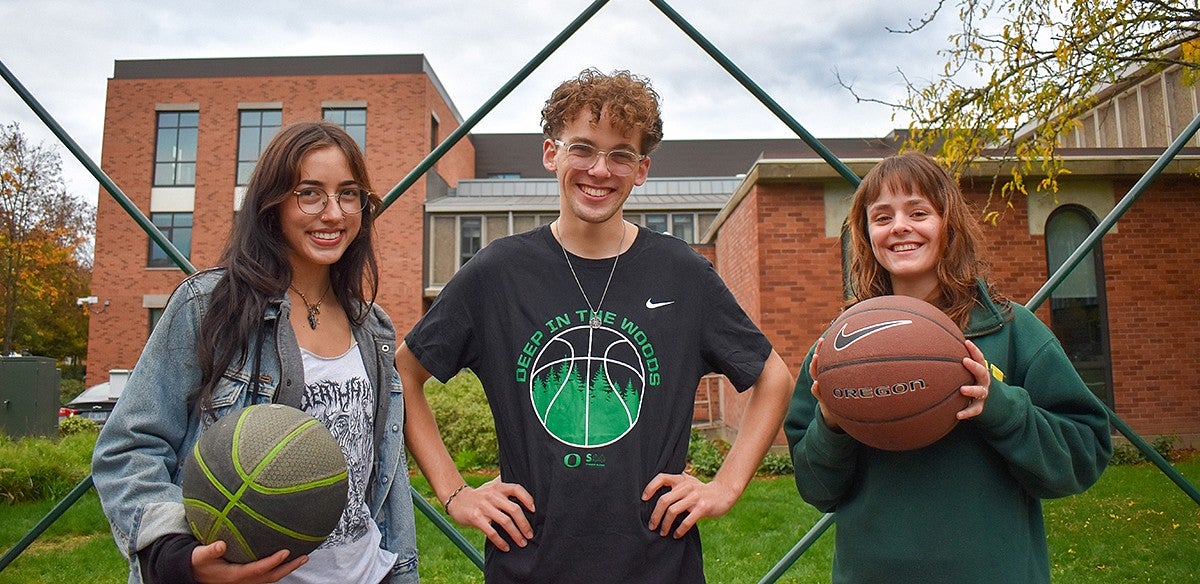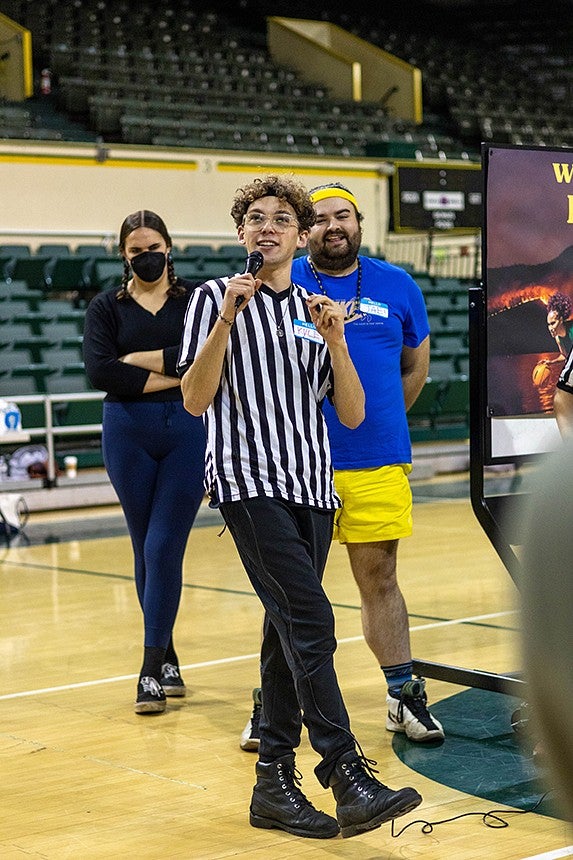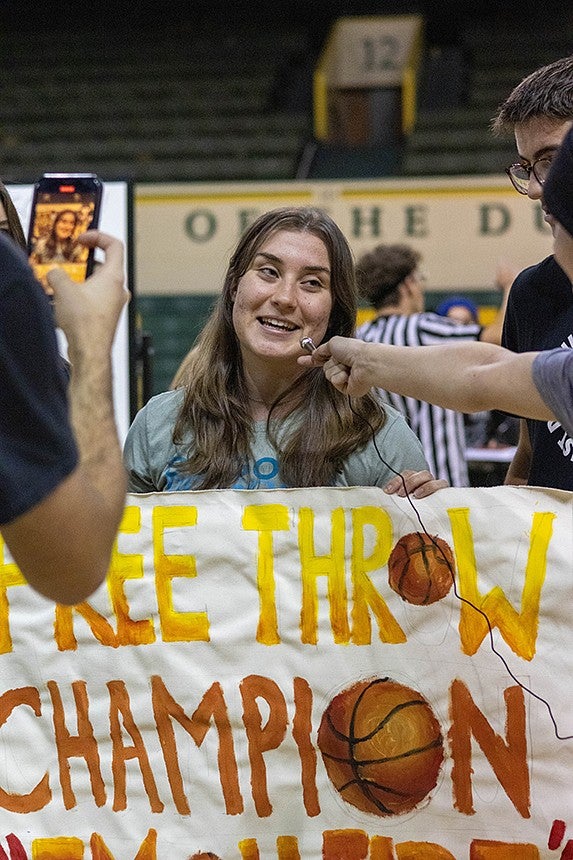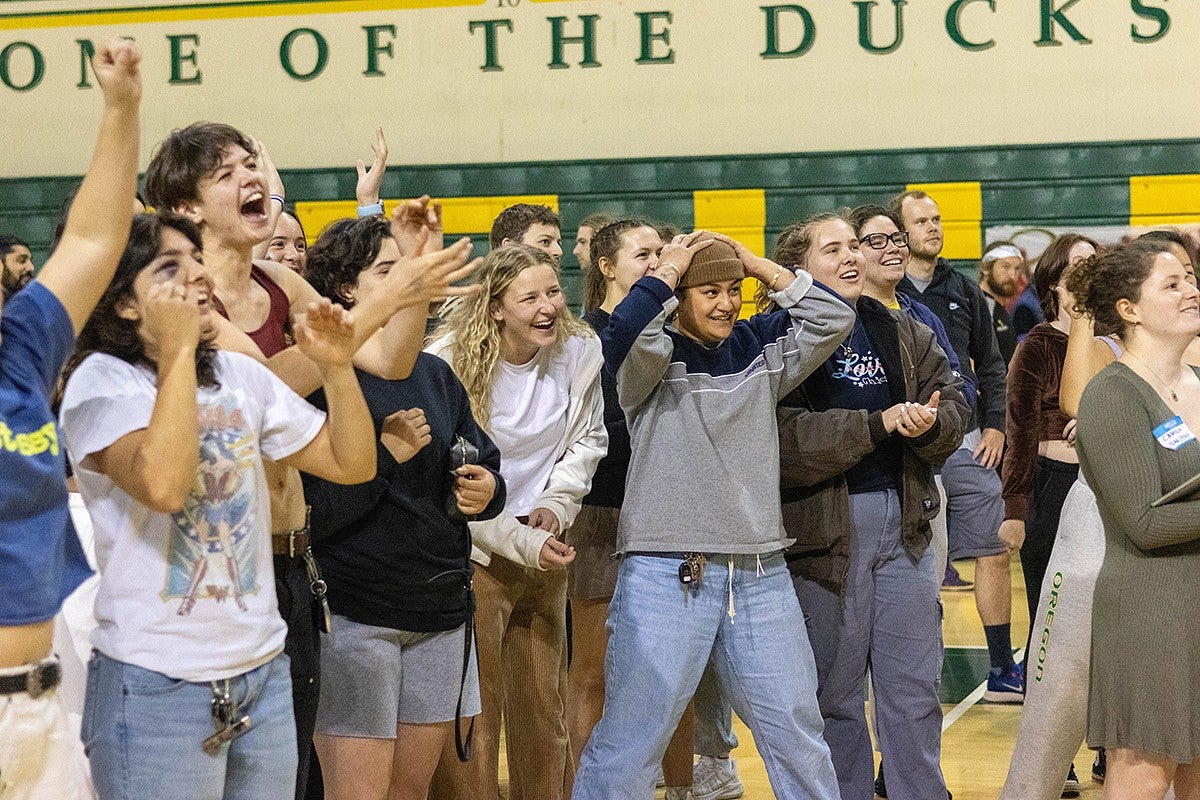Rewriting the relationship with fire

Learn more about groups advocating for wildfire resilience in Oregon:
FireGeneration Collaborative: A non-profit working to redefine the public’s relationship with fire by uplifting youth and indigenous voices in discussions about fire.
Wagon Burners: An Indigenous burn crew based in Kalapuya Ilihi dedicated to restoring the land with good fire.
Oregon Conservation Corps: An organization established by the Oregon State Legislature to fund partners around Oregon working to reduce wildfire risks.
Near the fire front, wildland firefighter Kyle Trefny and his team clear the roofs of rural residents’ homes to prevent them from burning. The race to prevent the devastation of houses is interrupted by residents passing out freshly picked apples from their backyard to the fire crew.
But Trefny, now a Clark Honors College senior, imagines a day when the reaction to fire looks different. The emergency response firefighters provide when fire is 100 feet away isn’t a long-term solution, he explains.
“We’re trying to help residents make changes when it’s largely out of our hands,” he says. According to Trefny, the future of fire requires year-round education, with communities actively working to keep their homes safe. With that, it requires a healthy relationship with fire – one that isn’t dictated by fear.
As one of the co-founders of the FireGeneration Collaborative, Trefny works to create that future. But it’s not work he can do alone.
The collaborative is a group effort involving Trefny, two Clark Honors College alumni – Ilse Stacklie-Vogt and Jess Gladis – and team members from across the Northwest region and beyond. The organization, under the guidance of the nonprofit Firefighters United for Safety, Ethics and Ecology, and directed by Oregon alum and Indigenous fire practitioner Ryan Reed, centers youth advocacy and Indigenous leadership in redefining the public’s relationship of fire.
Their work is strengthened by their partnership with other environmental justice organizations such as the Wagon Burners, an all-Indigenous wildland fire crew stationed in the Willamette Valley and the Oregon Conservation Corps.
Their most recent project together was the Oregon Wildfire Resilience Hoopathon last month. The event raised over $8,000 to empower Indigenous communities, youth voices, and other organizations around the state working on wildfire resilience.
A generation marked by fire
It isn’t the work of one person, according to Trefny, who is a Stamps Scholar studying Chinese and economics. But collaboration makes it possible when everyone does their part. “There is a lot of fear around what our future looks like with fire,” Trefny says.
It’s an anxiety he used to share, as he remembers fire being one of his earliest fears as a child growing up in Northern California.
After the devastating impacts of the 2020 wildfires that took place in Oregon and Trefny’s home state of California, he set the goal of training to become a wildland firefighter. He soon realized that fighting fires is only a small piece of the larger puzzle.
“I think that a lot of (our generation) recognizes we’re in a pretty unique time in human history, and so when you meet other young people who want to get involved, it’s like ‘What can we do together?’”
“When I got to the University of Oregon, I (started) learning that people and fire actually have a really deep relationship in this landscape and that indigenous people have had a positive relationship with fire for most of the time that people have been on this land,” Trefny says.
During his first year in the Clark Honors College, he took a class taught by Mark Carey, UO professor of environmental studies and geography, about Indigenous peoples. The discussions and projects in the course motivated Trefny to consider other ways he could be involved in the environmental justice movement that did not revolve solely around suppressing wildfire.
“He was terrific as a student,” Carey says of Trefny. “He was energetic, thoughtful and engaged, curious and really trying to learn.”


In 2022, Trefny worked with Reed, Bradley Massey and Alyssa Worsham to found FireGeneration. Their goal was to amplify diverse young voices. Once they got started, it wasn’t difficult to find other passionate young people.
“I think that a lot of (our generation) recognizes we’re in a pretty unique time in human history,” says Trefny. “And so when you meet other young people who want to get involved, it’s like ‘What can we do together?’”
Stacklie-Vogt joined up shortly after it started, assisting with administrative and policy work. She’d come to the University of Oregon determined to study political science, but quickly fell in love with environmental justice. After regularly volunteering at Huerto de la Familia, a community garden in Eugene, she became interested in learning more about the relationship individuals have to the land and the cultural nature of food.
“(Fire) wasn’t a domain I’d worked in before, so that’s why I joined FireGen,” she says.
Gladis joined soon after to work with Trefny on the research team. Their research focuses on investigating workforce demographics in wildland firefighting crews and ways to include the voices of less represented groups in that space. Her focus at UO was around labor organization and environmentalism.
Wildland firefighting is a topic that’s particularly close to home for her, as someone whose partner works in the field. “It just really takes a toll physically, mentally, and financially for those folks,” she says. “It is very hard to unionize in that industry. (The system is) just kind of set up in such a way that makes it very difficult to break out of those inequities.”

Since FireGeneration’s inception, the team has made major strides in research, working on land and policy advocacy.
One of the earliest goals of FireGeneration was to support the appointment of Reed to the Northwest Forest Plan Federal Advisory Committee. The committee makes recommendations to manage forests across indigenous land.
Members have also traveled to Washington, D.C. to meet with leaders of the U.S. Forest Service and the U.S. Department of Interior to uplift the voices of young adults in the decision-making process of environmental initiatives.
Meanwhile, FireGeneration’s partners continue to actively prevent wildfire risks by conducting pile burns, a process in which extra vegetation is gathered and lit on fire to reduce fuel levels on the land.
Free-throws for the cause
The Hoopathon took place on Nov. 19 at UO’s McArthur Court. Teams of students huddled with one another to shoot as many free throws as possible. Each successful shot resulted in a donation to an organization working to prevent wildfires.
“The amount of love and inspiration and excitement you feel from bringing all of those people together is enough to make you keep going and wanting to keep doing the work,” says Stacklie-Vogt. “It’s a place that makes me feel good, where I feel sustained, like I can keep making a positive impact.”The event gave participants a chance to have fun and brainstorm how to develop a relationship with fire that is a positive one.
Gladis described it as a way for “bringing people together, having friendly competition, and pointing people’s attention towards this important cause.”
She said she hopes to see it grow and turn into an annual event to mark the end of fire season.
As Trefny approaches his graduation this spring, he plans to continue his leadership at FireGeneration and establish a stronger local presence in communities most impacted by fire.
“We are here for the long fight,” Trefny says.
